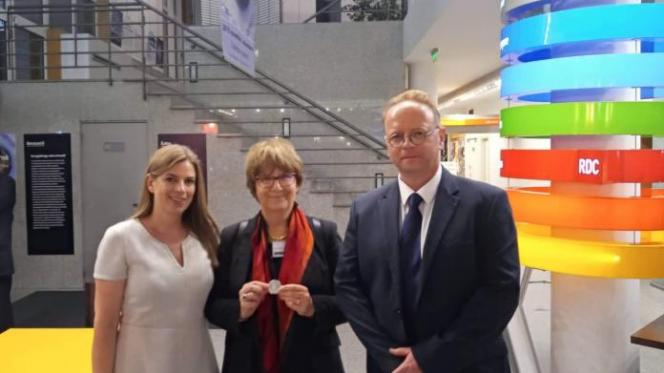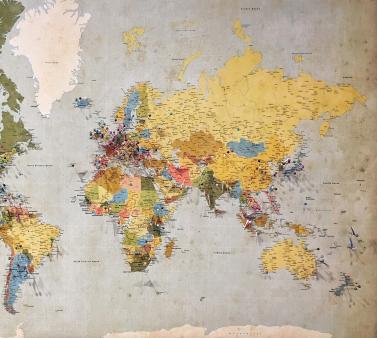
Professor Christine Ferlampin-Acher, Director of the CELLAM EA 3206 (Centre d'études des langues et littératures anciennes et modernes), was recently honored by the Eötvös Collegium in Budapest at the international symposium on “Byzantium and the Occident”. Held at the prestigious Collegium from 25 - 28 November, the symposium was the 7th edition of meetings focusing on the theme of relations between Europe and Byzantium in the Middle Ages. When speaking about this honor she stated that, “Research grows on the soil of friendly relations, and needs the nourishment of institutional cooperation in order to grow.”
Professor Ferlampin-Acher has been working closely with her Hungarian colleagues from the Collegium on a joint project entitled “Textual Criticism in the Interpretation of Social Context: Byzantium and Beyond". Submitted to the Hungarian National Research Development and Innovation Office (NRDI), the overall project focuses on medieval Byzantine literature within the framework of the Byzantium Centre of the Eötvös Collegium. Working with Collegium Professor Emese Egedi-Kovács, and within the framework of this cooperation, she has been completing research on the encounters between Byzantium and the West in terms of French medieval literature. This work also follows up on research conducted within the context of the LATE project (Late Arthurian Literature in Europe), on which she has been working since 2012, with support from support from the Maison des Sciences de l’homme en Bretagne (MSHB) and the International Arthurian Society.
“I have often participated in these colloquia examining how Western novels are nourished by Greek culture or reinvest an Eastern imaginary more or less close to reality. The question is a fascinating one: for me, working on the late Middle Ages, at the dawn of the Renaissance, it is fascinating to see that the world was much less partitioned than one might think and that even (and perhaps especially) in works of fiction the influence of Greece is very strong.”
Within the framework of the 26th International Arthurian Congress, which will take place in Catania next July from the 19th - 25th, Professor Ferlampin-Acher will present to the community of medievalists the LATE publication which is currently being prepared.
Further reading:
- Artus de Bretagne, du manuscrit à l’imprimé (XIVe-XIXe siècle), Rennes, Presses Universitaires de Rennes, 2015, 363 p.;
- Arthur après Arthur la matière arthurienne tardive en dehors du roman arthurien (1270-1530), Rennes, Presses Universitaires de Rennes, 2017, 661 p. ;
- Matières à débat. La notion de matière littéraire au Moyen Âge, C. Ferlampin-Acher et C. Girbea (dir.), Rennes, Presses Universitaires de Rennes, 2017, 734 p.
Soon to be published:
- Arthur en Europe à la fin du Moyen Âge. Approches comparées (1270-1530), textes réunis par C. Ferlampin-Acher, Paris, Garnier
- LATE (1270-1530) : La matière arthurienne tardive en Europe. Late Arthurian Tradition in Europe),textes réunis par C. Ferlampin-Acher, Rennes, Presses Universitaires de Rennes ; parution 2020 aux PUR
- Traduction annotée par C. Ferlampin-Acher pour le grand public d’Artus de Bretagne, à paraître chez Champion




